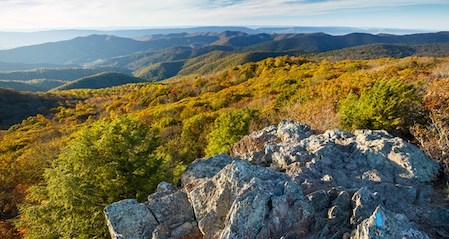
By Paul Quigg, columnist
I am finding it very difficult to understand the predictions of climate disasters during the recent warm spell. A yearly UN IPCC climate meeting is coming up soon and the activists are working hard to make sure we understand disastrous weather is happening now and will continue to get worse.
The rhetoric is getting sharper and there is no mention of the fact that the warm weather was pretty nice and we probably avoided a lot of colds and flu plus other cold weather problems. The activists certainly don’t want us to understand that 15 percent more people die in January than they do in July. A graph of yearly deaths is remarkably consistent year after year. Please look up yearly death rates and see for yourself.
Instead, all we get is “far-reaching and worsening calamities — unsafe drinking water, housing insecurity, infrastructure insecurity, increased trouble farming and fishing, worsening key ecosystems, worsening public health”, and on and on. Not one mention of anything good from warm weather.
The UNIPCC is chartered to give a comprehensive assessment of future climate trends and they are failing in doing so. How can they get away with this? An understanding of UN assessment policy in which political members have dominant control over scientific members’ findings is a large part of the problem, plus the media has little interest in looking for anything positive.
Weather reports referred to a record-hot day last week, breaking a record from 1928. What happened in 1928? I don’t have a clue, but it must have some significance in this climate debate. The climate debate is very one-sided and I am not knowledgeable enough about climate science to answer the question of why. In fact, I have no recollection of reading an answer. Most rebuttals say there are more important global objectives than climate and let it go at that.
The ability of the activists and the media to turn every climate event, good or bad, into an actual or potential disaster is remarkable. The potential for a future catastrophic climate is unknowable and the doomsday crowd is taking full advantage of the slow and relentless change in the climate.
Mr. Quigg, a University of Virginia graduate and resident of Luray, has practiced architecture in the Mid-Atlantic region since 1962. As a lifelong environmentalist, in the 70’s he was appalled at the polluted air and water and has dedicated much of his time since in studying and commenting on the environment. He has been published in the Washington Post, the Wall Street Journal and other publications.
•••
PREVIOUS COLUMNS
Tomorrow ~ Fossil fuels vs Renewables
Tomorrow ~ At last, a solar ordinance
Tomorrow ~ Who says we have to have industrial solar?
Tomorrow ~ Steady rise of CO2 ‘discouraging’
Tomorrow ~ Warmer weather is not a bad thing
Tomorrow ~ Without subsidies, solar industry would dry up
Tomorrow ~ Thank you planning commission
Planning commission recommends denial of Cape Solar application by unanimous vote



Money is why it’s done.
I think you’re forgetting the difference between weather and climate, Paul. Sure, warm, sunny days are nice wherever they occur, but what is the relevance to global climate change? Imagine a global average temperature increase of 6 degrees F, in other words an extreme scenario. Would there still be the warm, moderate days we all love? Of course there would. You can’t judge a movie by one still frame. What’s going on all the other days, in all areas of the world?
Climate change has its slow, almost imperceptible aspect, which makes it hard for us to really feel it as threat. It also has the aspect of increasing the incidence of extreme weather events– but if those are happening somewhere far away, we can discount their significance. Put these two aspects together, and you can understand why our minds have such difficulty accepting climate change as an immediate fact. We’re shown the data, but we don’t process well this kind of data. I think we all engage in unconscious denial, even if we say we’re all in regarding the science.